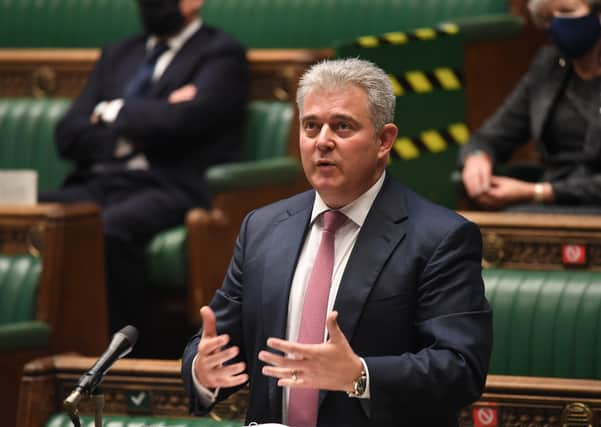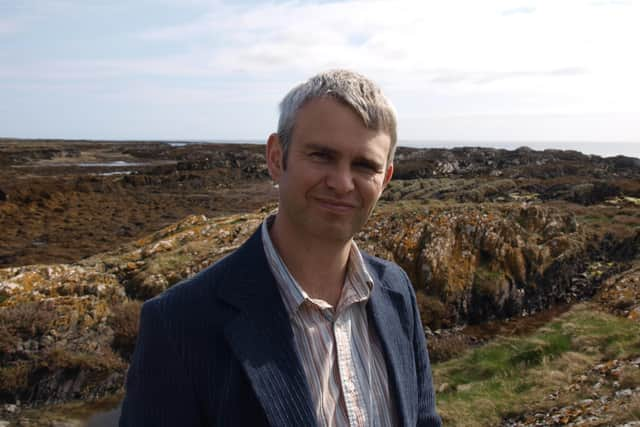London’s latest plan to deal with legacy is chance to reset the imbalance against UK state forces


Although the idea seemed to shock many observers, it has been discussed for a while, with the prime minister in particular being a long-time critic of the general drift of ‘legacy’ politics, which has tended to place the onus of responsibility on state actors – completely outwith the historical record.
As a result of the debate over these amnesty suggestions a key section has thus far been under-reported: Namely, the issue of oral history and the recovery of the experiences of those ‘whose voices have not been heard previously’.
Advertisement
Hide AdAdvertisement
Hide AdOne would hope that this would mean that the stories of for example nurses in A and E who had to work with the dismembered bodies from explosions and shootings might be given greater prominence than heretofore.


Or the stories of the vast majority of the citizens of Northern Ireland who refused to participate in the ‘armed campaigns’.
Pessimistic commentators who suggest that the proposals will ‘simply redraw the battle lines for the future’ may of course be correct. But the government, for the first time, has laid down a commitment to a contextualised history that would ‘help build an understanding … that reflects the complexity of the events of the past, as well as the broader landscape and context in which they took place’.
For unionists, this could be an opportunity to reset the imbalances of the ‘legacy’ landscape – for instance, the ‘lawfare’ focus on the state as perpetrators, the amnesties offered to the On-the-Runs, the industrial scale of the republican commemoration project.
Advertisement
Hide AdAdvertisement
Hide AdThis would mean guarding against the notion that context is equivalent to a structural view of history: That partition was unjust and undemocratic, that the island of Ireland is determined to be a geographical unity, that the ‘British’ presence on the island is at the core of all the violence.
Instead, the idea of context must relate to the historical record as it happened: namely, the decision by a handful of republicans to initiate a ‘war against the Brits’ despite the fact that the civil rights movement had achieved nearly all its aims.
That context also includes the decision by republicans to continue to prosecute their war despite the fall of Stormont in 1972. As Martin McGuinness explained at the time, ‘These people are going around seeking for peace. They are wasting their time. We are fighting on. We are not stopping until we get a united Ireland.’
The impulse of much of the academic interventions has been along those structural lines and in some ways the government proposals could be read as a continuation of the attempt to restructure a new understanding of law along the lines of testimonial work.
Advertisement
Hide AdAdvertisement
Hide AdThus, the government document speaks of the need to recognise the importance of restorative justice in which the traditional judicial apparatus is substituted for a dialogue between victim and perpetrator.
The ethos of restorative justice is to focus on the crime not the criminal – an approach that ultimately reflects the nationalist understanding that the conflict was to do with long-standing (structural) issues concerning British colonialism and neo-imperialism.
As such, there is much to be sceptical about as regards the government’s proposed way of approach the historical dimensions of the past.
Unionists, however, should take a leaf out of the nationalist playbook and ‘bank’ the ‘concessions’ that have been offered rather than walking away tout court.
Advertisement
Hide AdAdvertisement
Hide AdMr Lewis concluded by quoting Margaret Fairless Barber who was used as the epigram to the ill-fated Eames-Bradley proposals of 2009: ‘To look backward for a while is to refresh the eye, to restore it, and to render it the more fit for its prime function of looking forward’.
Unionists should perhaps remember the possibility of unintended consequences and encourage the government to pursue the more enlightened and historically accurate elements of its new vision.
Perhaps unionists should remind Mr Lewis that Barber also stated that ‘Revelation is always measure by capacity’ and that fine words demand purposeful actions.
• Dr McGrattan is a lecturer at Ulster University
Advertisement
Hide AdAdvertisement
Hide Ad——— ———
A message from the Editor:
Thank you for reading this story on our website. While I have your attention, I also have an important request to make of you.
With the coronavirus lockdown having a major impact on many of our advertisers — and consequently the revenue we receive — we are more reliant than ever on you taking out a digital subscription.
Subscribe to newsletter.co.uk and enjoy unlimited access to the best Northern Ireland and UK news and information online and on our app. With a digital subscription, you can read more than 5 articles, see fewer ads, enjoy faster load times, and get access to exclusive newsletters and content. Visit https://www.newsletter.co.uk/subscriptions now to sign up.
Advertisement
Hide AdAdvertisement
Hide AdOur journalism costs money and we rely on advertising, print and digital revenues to help to support them. By supporting us, we are able to support you in providing trusted, fact-checked content for this website.
Ben Lowry
Acting Editor